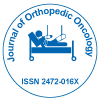Nuestro grupo organiza más de 3000 Series de conferencias Eventos cada año en EE. UU., Europa y América. Asia con el apoyo de 1.000 sociedades científicas más y publica más de 700 Acceso abierto Revistas que contienen más de 50.000 personalidades eminentes, científicos de renombre como miembros del consejo editorial.
Revistas de acceso abierto que ganan más lectores y citas
700 revistas y 15 000 000 de lectores Cada revista obtiene más de 25 000 lectores
Indexado en
- Google Académico
- Búsqueda de referencia
- Universidad Hamdard
- EBSCO AZ
- OCLC-WorldCat
- publones
- Pub Europeo
- ICMJE
Enlaces útiles
Revistas de acceso abierto
Comparte esta página
Abstracto
Brief Discussion on Metastatic Bone Osteolysis
Perez Jessica
Bone-resorbing osteoclast activation facilitates breast and prostate carcinoma bone metastasis. We have identified peroxiredoxin-4 (PRDX4) as a mediator of osteoclast genesis that is released by cancer cells through proteomics methods. Using immunoblotting and mass spectrometry, we now report the characterization of L-plastin in MDA-MB-231 human breast cancer cells’ conditioned media (CM). With L-plastin silenced by siRNA, the osteoclastogenic potential of MDA-MB-231 CM was significantly diminished. L-plastin was found in cancer-derived exosomes, and MDA-MB- 231 CM’s osteoclastogenic capacity was significantly diminished when exosomal release was inhibited. Recombinant L-plastin induced calcium/NFATc1-mediated osteoclastogenesis to levels comparable to continuous RANKL treatment when added to osteoclast precursors primed with RANKL for two days. We used ssRNA to generate MDA-MB-231 cells devoid of PRDX4, L-plastin, or both, and injected these cell populations into CD-1 immunodeficient mice via the tibia. When MDA-MB-231 cells lacking both L-plastin and PRDX4 were injected, micro-CT and histomorphometric analysis revealed a complete loss of osteolysis. Multiple human cancers, including breast and prostate carcinomas, showed an increase in L-plastin and PRDX4 mRNA expression, according to a meta-analysis. This study demonstrates that human breast cancer cells activate osteoclasts through the secretion of L-plastin and PRDX4.
Revistas por tema
- Agricultura y acuicultura
- Alimentación y Nutrición
- Bioinformática y biología de sistemas
- Bioquímica
- Ciencia de los Materiales
- Ciencia general
- Ciencias Ambientales
- Ciencias Clínicas
- Ciencias farmacéuticas
- Ciencias Médicas
- Ciencias Sociales y Políticas
- Ciencias Veterinarias
- Enfermería y atención sanitaria
- Física
- Genética y biología molecular
- Geología y Ciencias de la Tierra
- Ingeniería
- Inmunología y Microbiología
- Química
Revistas clínicas y médicas
- Anestesiología
- Biología Molecular
- Cardiología
- Cirugía
- Cuidado de la salud
- Dermatología
- Diabetes y Endocrinología
- Enfermedades infecciosas
- Enfermería
- Gastroenterología
- Genética
- Inmunología
- Investigación clínica
- Medicamento
- Microbiología
- Neurología
- Odontología
- Oftalmología
- Oncología
- Pediatría
- Toxicología

 English
English  Chinese
Chinese  Russian
Russian  German
German  French
French  Japanese
Japanese  Portuguese
Portuguese  Hindi
Hindi